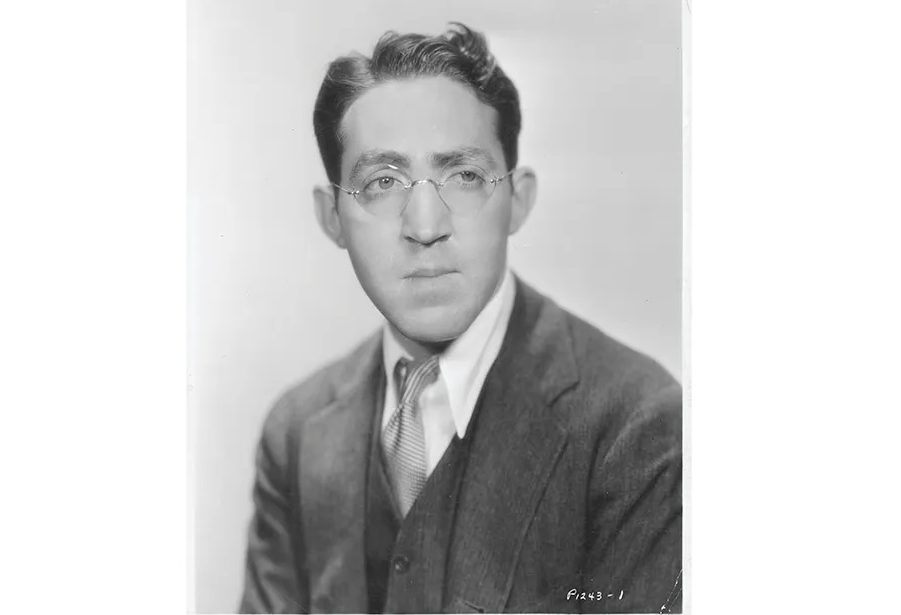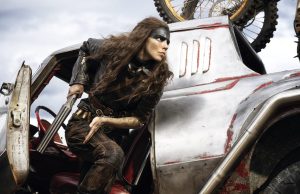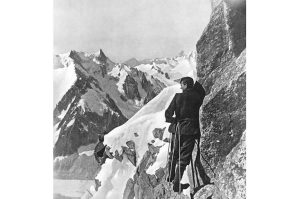Originally written for the New Yorker in the 1940s and 1950s but never before assembled, Cloudland Revisited: A Misspent Youth in Books and Film provides ample evidence that the great S.J. Perelman could misspend his youth with the best of them. It’s also the closest thing to an autobiography he ever completed: a series of comic reflections on the awful, absorbing books and movies which entertained him when he should have been attending his classes at Brown University (from which he eventually dropped out), or keeping a steady job.
Recollected in the tranquility (or complacency) of being a well-established, middle-aged family man, these guilty pleasures prove less absorbing to him the second time round, and often hilariously so — perhaps because vanishing into the “cloudland” of books and films is a lot harder when there’s a wife, two demanding children and a taxman eager to pull you straight back out again.
In a far away, more carefree time, there was only the teenage-to-twentysomething Perelman who mattered: a young man who enjoyed fleeing late shifts in a cigar store, or electroplating automobile radiators, to disappear into afternoon cinemas with the likes of Lillian Gish and Rudolph Valentino. Or he might go gloriously swinging off into library adventures with Tarzan of the Apes or the lesser known Leonie of the Jungle.
Even better were tales of worldly, passionate men and women chasing one another across landscapes far more exotic than Perelman’s native Rhode Island, such as the 1916 silent movie adaptation of Twenty Thousand Leagues Under the Sea, featuring an early film version of Captain Nemo wearing “a Santa Claus suit and a turban made out of a huck towel,” or E.M. Hull’s 1919 bestseller The Sheik, in which irresistible Lady Diana Mayo is kidnapped and ravished by Sheik Ahmed Ben Hassan — who turns out (providentially) to be the legitimate son of Lord Glencaryll and a Spanish noblewoman. (Like Tarzan, many of these romanticized “foreign” super-men proved to be disguised British nobility all along.) Despite his “fluctuating” resources as a young man, Perelman recalls:
I would sooner have parted with a lung than missed such epochal attractions as Tol’able David or Rudolph Valentino in The Four Horsemen of the Apocalypse, and I worked at some very odd jobs indeed to feed my addiction.
Like other great writers of his generation — Graham Greene, say, or F. Scott Fitzgerald — Perelman learned as much from bad books and movies as he did from good ones. He discovers in Hull’s “pungent” prose a casual genius for moving stories along quickly without a “lot of fussing over the table decorations and place cards,” thus serving “the soufflé piping hot” from the oven. And even the “engagingly simple and monstrously confused” plots of Sax Rohmer’s Fu Manchu series possessed enough diabolical energy to drive breathless pre-teen Perelman into his bedroom each night where he barricaded the door, while “sprinkling tacks along the windowsills, and strewing crumpled newspapers about the floor to warn me of approaching footsteps.”
But it’s clearly movies that most inspired the man who would go on to co-write (some claim) the best of the Marx Brothers’ most anarchically funny scripts — Monkey Business (1931) and Horse Feathers (1932). Perelman describes being mesmerized by the histrionic Erich von Stroheim — who not only kicked the metaphoric dog in a movie to establish his unrepentant evil, but kicked “the owner and the SPCA for good measure” — or the puberty-accelerating Theda Bara, whom he liked to imagine cradling his head in her lap, while he lay “intoxicated by coal-black eyes smoldering with belladonna.”
Some people live more fully in their entertainments than they do in themselves; and these essays are the glorious record of one of them, retracing childhood reveries in dusty attics filled with cardboard boxes of moldering books, while cranking up restored prints of old films. It’s nice to finally have this handy volume for those of us who have lived our lives just as unprofitably.
This article was originally published in The Spectator’s UK magazine. Subscribe to the World edition here.


















